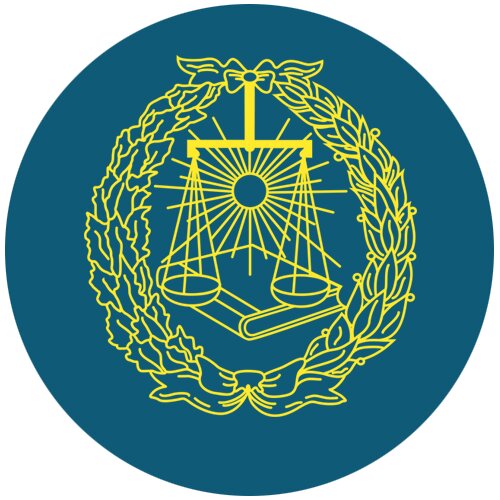Best Military Law Lawyers in Iran
Share your needs with us, get contacted by law firms.
Free. Takes 2 min.
Or refine your search by selecting a city:
List of the best lawyers in Iran
About Military Law in Iran
Military Law in Iran encompasses the regulations, legal codes, and judicial procedures that apply to the armed forces and personnel. This body of law governs matters such as the duties and responsibilities of military personnel, disciplinary actions, military crimes, and the organization of military tribunals. Iran's military legal system operates under its own distinct framework, influenced by religious precepts and national defense policies, and is separate from civilian judicial processes. Compliance with military law is paramount, ensuring national security and maintaining discipline within the ranks.
Why You May Need a Lawyer
There are various situations where individuals may require legal expertise in Military Law in Iran. These can include facing charges of insubordination, desertion, or conduct unbecoming of a military officer. Additionally, military personnel may need legal representation in cases of wrongful dismissal, challenges regarding military benefits, or disputes arising from contractual obligations. Family members of military personnel might also seek legal advice for matters related to military pensions or compensation following injury or death. Navigating these complex legal issues often necessitates the guidance of a lawyer specialized in military law.
Local Laws Overview
Key aspects of military law in Iran include adherence to the provisions outlined in the Military Penal Code. This code addresses offenses specific to military personnel, such as espionage, treason, and dereliction of duty. The establishment of military courts, referred to as "Branch Courts" and "Revolutionary Courts," allows for trials to be conducted according to the unique requirements of military regulations. These courts have jurisdiction over crimes committed by military personnel and ensure proceedings align with both national laws and Sharia principles. Understanding these local laws is crucial for those involved in legal matters within the military sector.
Frequently Asked Questions
What types of cases are handled by military courts in Iran?
Military courts in Iran handle cases involving military offenses, including insubordination, desertion, espionage, and violations of military discipline.
How does Military Law differ from civilian law in Iran?
Military Law in Iran is distinct from civilian law as it applies specifically to armed forces personnel, with its own courts, rules, and procedures designed to address issues pertinent to military service.
Can a civilian be tried under Military Law in Iran?
Generally, civilians are not subject to Military Law in Iran unless they commit offenses related to state security or under specific circumstances involving the armed forces.
What rights do military personnel have under Iranian Military Law?
Military personnel in Iran possess rights similar to civilian rights but are also subject to additional regulations concerning conduct, discipline, and obligations unique to military service.
Are there special lawyers for military cases in Iran?
Yes, there are lawyers who specialize in military law in Iran and are well-versed in navigating the intricacies of military judicial processes and regulations.
What punishments can be imposed under Military Law in Iran?
Punishments under Military Law can range from reprimands and fines to imprisonment and, in severe cases, capital punishment, depending on the gravity of the offense committed.
How are appeals handled in military courts?
Appeals in military courts are processed through higher military tribunals or revolutionary courts, following the established procedures within the military judicial system.
What is the role of the Military Legal Department in Iran?
The Military Legal Department provides legal services, advice, and assistance to military personnel, and oversees the enforcement of military laws and regulations.
Can military personnel access civilian legal services?
Military personnel can access civilian legal services, though matters directly related to military service are typically handled within the framework of Military Law and its specialized lawyers.
How does one file a complaint or report a grievance within the military?
Grievances or complaints within the military can be filed through appointed channels, such as a superior officer or legal representative within the military hierarchy, as per established procedures.
Additional Resources
For further assistance, consider reaching out to the following:
- The Iranian Armed Forces General Staff Legal Department, which provides guidance and legal counsel to military personnel.
- The Judiciary of the Islamic Republic of Iran, which can offer insights into military law proceedings.
- Legal experts or law firms specializing in military law who can offer personalized consultation and representation.
Next Steps
If you need legal assistance in military law, consider the following steps:
- Identify the specific nature of your legal issue and gather any relevant documentation or evidence.
- Seek the advice of a lawyer specializing in military law to discuss your case and explore your legal options.
- Ensure you are familiar with the procedures and rights applicable within the military legal framework.
- Prepare for any potential court proceedings by organizing your case, understanding the charges, and formulating a defense strategy with your legal representative.
- Stay informed about any changes or updates in military law that may affect your case.
Lawzana helps you find the best lawyers and law firms in Iran through a curated and pre-screened list of qualified legal professionals. Our platform offers rankings and detailed profiles of attorneys and law firms, allowing you to compare based on practice areas, including Military Law, experience, and client feedback.
Each profile includes a description of the firm's areas of practice, client reviews, team members and partners, year of establishment, spoken languages, office locations, contact information, social media presence, and any published articles or resources. Most firms on our platform speak English and are experienced in both local and international legal matters.
Get a quote from top-rated law firms in Iran — quickly, securely, and without unnecessary hassle.
Disclaimer:
The information provided on this page is for general informational purposes only and does not constitute legal advice. While we strive to ensure the accuracy and relevance of the content, legal information may change over time, and interpretations of the law can vary. You should always consult with a qualified legal professional for advice specific to your situation.
We disclaim all liability for actions taken or not taken based on the content of this page. If you believe any information is incorrect or outdated, please contact us, and we will review and update it where appropriate.
Browse military law law firms by city in Iran
Refine your search by selecting a city.










